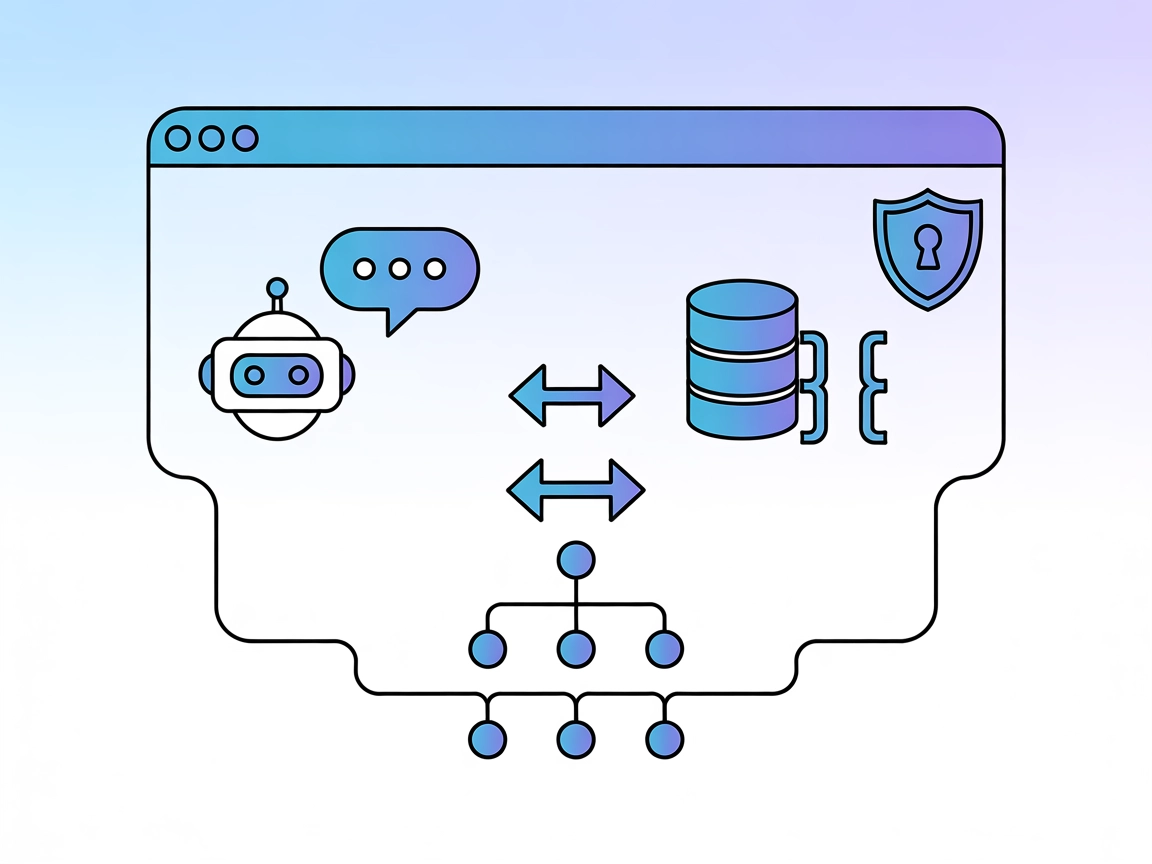
Linear MCP Server Integration
The Linear MCP Server enables seamless automation and management of Linear issue tracking via the Model Context Protocol, allowing AI assistants and developers ...

A robust Python MCP server for AI-powered access and analysis of LINE Bot conversations, supporting real-time and historical data integrations.
FlowHunt provides an additional security layer between your internal systems and AI tools, giving you granular control over which tools are accessible from your MCP servers. MCP servers hosted in our infrastructure can be seamlessly integrated with FlowHunt's chatbot as well as popular AI platforms like ChatGPT, Claude, and various AI editors.
The py-mcp-line MCP Server is a Python-based implementation of the Model Context Protocol (MCP) designed to provide AI assistants, such as language models, with standardized access to LINE Bot messages. By acting as a bridge between AI clients and LINE conversations, the server enables LLMs to read, analyze, and interact with LINE data in real-time. Built with FastAPI and leveraging asynchronous Python features for responsiveness, py-mcp-line makes it possible to process webhook events, validate data, and store messages in structured JSON format. This greatly enhances development workflows for projects requiring conversational analysis, bot development, or integration of LINE messaging data into broader AI-driven applications by exposing LINE resources, validating requests, and handling various message types.
line://<message_type>/data, enabling clients to access different categories of LINE messages.requirements.txt are installed.~/Library/Application Support/Claude/claude_desktop_config.json. On Windows, open %APPDATA%/Claude/claude_desktop_config.json.mcpServers object:{
"mcpServers": {
"line": {
"command": "python",
"args": [
"server.py"
],
"env": {
"LINE_CHANNEL_SECRET": "your_channel_secret",
"LINE_ACCESS_TOKEN": "your_access_token",
"SERVER_PORT": "8000",
"MESSAGES_FILE": "data/messages.json"
}
}
}
}
Store sensitive credentials in environment variables using the env key as shown above to prevent accidental exposure.
Using MCP in FlowHunt
To integrate MCP servers into your FlowHunt workflow, start by adding the MCP component to your flow and connecting it to your AI agent:

Click on the MCP component to open the configuration panel. In the system MCP configuration section, insert your MCP server details using this JSON format:
{
"line": {
"transport": "streamable_http",
"url": "https://yourmcpserver.example/pathtothemcp/url"
}
}
Once configured, the AI agent is now able to use this MCP as a tool with access to all its functions and capabilities. Remember to change “line” to whatever the actual name of your MCP server is and replace the URL with your own MCP server URL.
| Section | Availability | Details/Notes |
|---|---|---|
| Overview | ✅ | Provided in README.md |
| List of Prompts | ⛔ | No prompt templates found in the repository |
| List of Resources | ✅ | Resource listing and reading via API, supports filtering |
| List of Tools | ✅ | list_resources, read_resource in server.py |
| Securing API Keys | ✅ | Environment variables documented |
| Sampling Support (less important in evaluation) | ⛔ | No explicit mention of sampling support |
Based on the above, py-mcp-line provides a solid MCP implementation focused on LINE message access, with clear resource and tool exposure, environment-based security, and real-world setup guidance for Claude. The lack of prompt templates and explicit sampling/root features limits broader score, but for conversational analysis and bot integration, it is functional and well-documented.
| Has a LICENSE | ✅ (MIT) |
|---|---|
| Has at least one tool | ✅ |
| Number of Forks | 6 |
| Number of Stars | 17 |
Overall, I would rate this MCP implementation a 6.5/10. It covers the core functionalities for LINE message integration and is well-suited for developers needing conversational data access, but lacks advanced MCP features like prompt templates, sampling, and roots support.
py-mcp-line is a Python implementation of the Model Context Protocol (MCP) that provides AI assistants with secure, structured access to LINE Bot conversations for analysis, integration, and archiving.
It exposes LINE message types (such as text, sticker, image) as resources accessible via URIs, supporting advanced filtering by date, user, or content.
Typical use cases include conversational data analysis (sentiment, topic modeling), chatbot development, message archiving, and multimodal data processing within LINE conversations.
Store sensitive data like channel secrets and access tokens in environment variables as shown in the configuration examples, avoiding hardcoding in your codebase.
Yes! Add an MCP component to your FlowHunt flow, then configure it with your py-mcp-line server details to enable AI agent access to LINE messages and tools.
No, it does not include prompt templates or explicit sampling/root features. It focuses on providing resource access and message handling.
Use py-mcp-line to connect your AI agents to LINE chats for advanced conversational analysis, bot development, or message archiving.

The Linear MCP Server enables seamless automation and management of Linear issue tracking via the Model Context Protocol, allowing AI assistants and developers ...

The Linear MCP Server connects Linear’s project management platform with AI assistants and LLMs, empowering teams to automate issue management, search, updates,...

The Linear MCP Server integrates the Linear project management platform with AI assistants via the Model Context Protocol, enabling automation, querying, and ma...
Cookie Consent
We use cookies to enhance your browsing experience and analyze our traffic. See our privacy policy.